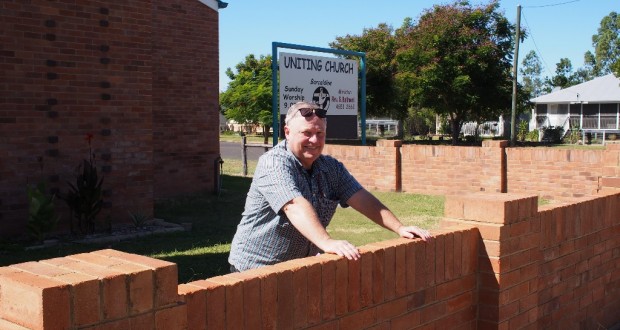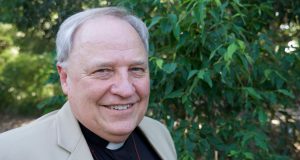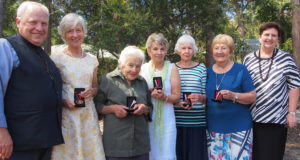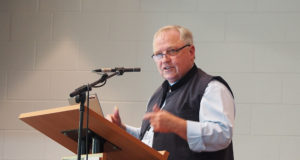After see-sawing for a couple of years, from 2016 we’re back to celebrating Labour Day in May. It got me thinking about the church’s connection to the union movement.
One of our founding tradition’s connections goes back to Tolpuddle, in Dorset, England.
In the early 1800s, there was a trend of consolidation of land holdings by wealthy landholders that was putting further pressure on farm workers—their wages were being reduced, and their capacity to grow food for themselves was also. Unions had already begun to be formed in the cities, and landholders were extremely concerned that this might spread to rural workers. The country around Dorset is poor—chalklands—and to eke out a living is a struggle. (Not like the country to the north—Somerset and Gloucestershire, which is good dairying country and where a lot of cheese is produced, hence, some say, the term “chalk and cheese”).
In the midst of this pressure, George Loveless, a local Methodist lay preacher, joined with five other men to form a union of farm workers. They made an oath. The local landholder, James Frampton, heard about it, and used an old law against secret oaths—that had application in the navy—to have the men convicted and sentenced to seven years in jail, and transportation to Van Diemen’s Land. Loveless sought to raise a rallying cry to defend himself and his friends:
God is our guide! from field, from wave,
From plough, from anvil, and from loom;
We come, our country’s rights to save,
And speak a tyrant faction’s doom:
We raise the watch-word liberty;
We will, we will, we will be free!
There was strong popular support for the men. A massive demonstration occurred in London, and a petition of over 800 000 signatories was delivered to parliament. The men became known as the Todpuddle Martyrs.
It took three years of struggle for the government to respond; conditional pardons were offered, but refused. Eventually, after further demonstrations and petitions, the men were unconditionally pardoned and allowed to return home.
The event became a galvanising moment for the development of unions in England, and their place in civil society. It is still remembered in Tasmania, and at a yearly festival in July at Tolpuddle.
The sobering truth is that the landholders believed they were upholding the values of God, king, and country, even while they were oppressing the farm labourers and their families. Christian discipleship today demands that we too, exercise a critical discernment around the interplay of the gospel imperative and the ordering of our society.
Rev David Baker
Moderator, Queensland Synod
 JourneyOnline
JourneyOnline






